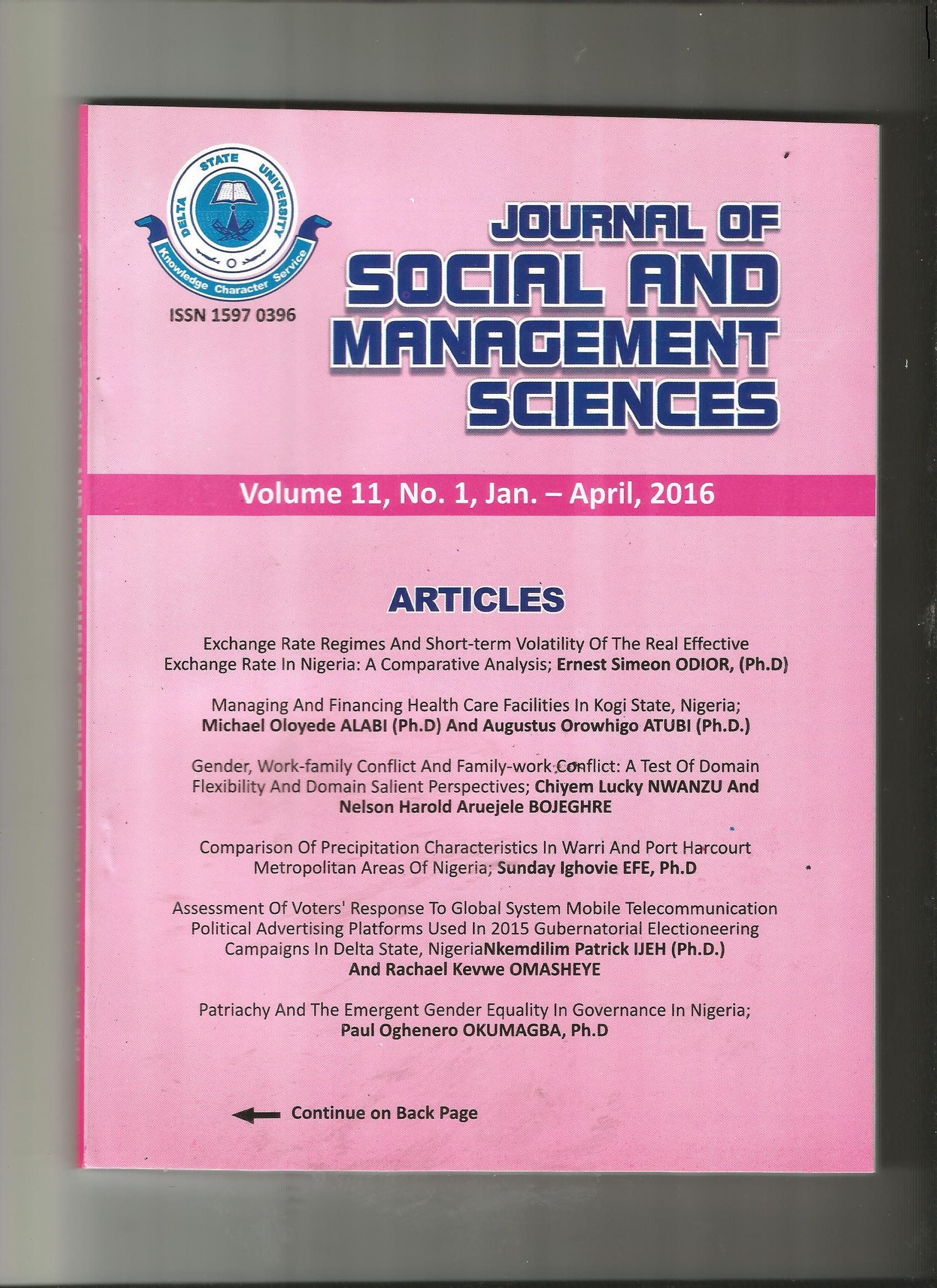
JOURNAL OF SOCIAL AND MANAGEMENT SCIENCES
Journal of the Faculty of Social Sciences, Delta State University, Abraka, Nigeria
ISSN: 1597-0396
DOI: 10.5987/UJ-JSMS
Email: jsms@universityjournals.org
FISCAL POLICY AND SOCIAL WELFARE: ZELLNER’S MULTIVARAITE REGRESSION APPROACH
DOI: 10.5987/UJ-JSMS.16.019.1 | Article Number: DAC19B19 | Vol.10 (3) - September 2015
Author: ODIOR Ernest Simeon
This paper examines empirically how the different fiscal (tax-spending) policy instrument affect social welfare in Nigeria. The paper uses a multivariate econometric regression modeling techniques to estimate the relationship between the real per-capita, GDP, and fiscal policy variables categorized into capital and recurrent heads and disaggregated across productive and unproductive heads of government expenditure in Nigeria. Variables like Government expenditure which comprises of both capital and recurrent expenditure, also government total revenue and other basic macroeconomic rate variables are considered in this study. Empirical study has shown that there exist a positive relationship between the roles of physical policy and the welfare given the fact employment, price stability, infrastructural development, etc are as a result of government spending. It was also found out that the productive government expenditure has positive effect on economic growth i.e. productive government expenditure is growth-enhancing. Thus, the study concluded that the component of government expenditure and tax revenue matter in determining welfare and recommends that fiscal policy/government expenditure should be focused and directed towards productive uses like education, helath and infrastructure, so as to enhance welfare growth, thereby making Nigeria a better nation to live in.
